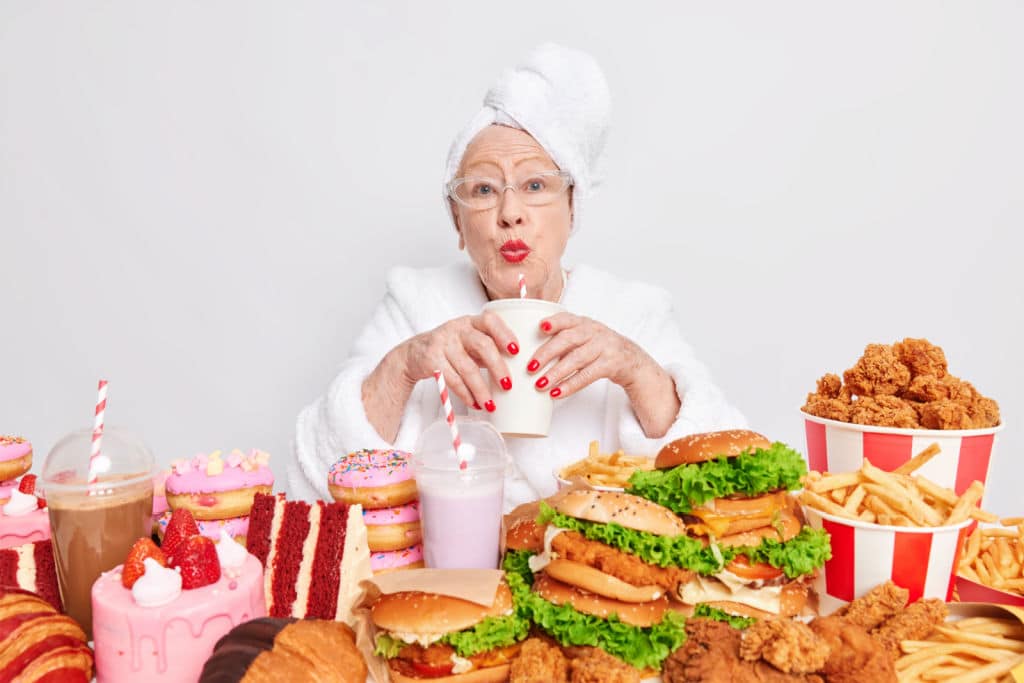Why Are People Hungry in the Winter?
The winter season causes us to crave certain foods. In fact, winter can cause our appetite to rise by more than twice the normal level. This can be due to many factors, including less sunlight and colder weather. There are also evolutionary reasons for us to crave certain foods. Read on to learn more about this phenomenon and what you can do about it.
Less sunlight
The reduced sunlight during the winter can lead to lower serotonin levels in the brain, a neurotransmitter that boosts our mood. Eating high-calorie foods gives us this quick serotonin rush and maybe our body’s way of combating seasonal depression. Lack of sunlight may also lead to vitamin D deficiency, which can increase hunger and binge eating. Moreover, people tend to stay indoors for longer periods of time, which makes them more likely to overeat.

Colder weather
Many people feel more hungry during the winter because the temperature is lower. This decrease in temperature lowers our body’s core temperature, and people crave carbohydrate-rich foods to provide this needed heat. The shorter days and shorter nights also cause changes in brain chemistry, and these changes can lead to an imbalance of hunger hormones. Additionally, people may feel mood swings and crave more comfort foods.

One study found that poor families spent a higher proportion of their income on food than rich families did. Poor families spent an average of 29.5% of their total budgets on food, whereas richer families spent a smaller portion of their incomes on food. The results suggest that colder weather tends to have a larger impact on the poor than on the rich.
Evolutionary biology
Humans have a strong instinct to eat in the winter, and this is a direct result of their evolutionary biology. In the past, the cold brought with it the threat of hypothermia, death, and scarcity of food. As a result, the human body has evolved an instinct to seek out fattier, richer foods to provide more energy during the colder seasons. In addition to this, shorter days and nights also cause our brain chemistry to change. This can result in imbalances of hunger hormones. In addition, it can lead to mood swings and the craving for comfort foods.

This response has evolved over several millions of years and has been associated with higher resistance to desiccation and oxidative stress, as well as a shift toward survival mode. The mechanisms that control this response are thought to help animals survive in difficult times. The molecular bases for the genes regulating SR have been identified. However, very little progress has been made in understanding the ecological role of this response. Nevertheless, it is important to remember that our evolutionary biology is a living, evolving organism and that this phenomenon may be a result of natural selection.
Comfort foods
Humans tend to feel more hungry in the winter, likely due to evolutionary tendencies and their increased energy and insulation needs. In addition, the body may not produce as much serotonin in the cold months, which could contribute to seasonal depression. Foods rich in carbohydrates are known to improve serotonin levels, and this could also be why people crave comfort foods during the cold months.

A lack of sunlight can also affect our serotonin levels, which can make us feel hungry. This low serotonin level can make you crave comfort foods like carbs and sweets. In addition, the lack of sunlight can increase the hormone melatonin, which can make us feel depressed and tired.
Mindset
If you’re feeling hungry during the winter, the first step to avoiding overeating is to recognize why you are hungry and respect that need. Winters are often more difficult for people to be outside, which can make them feel more hungry. This is a natural reaction to the cold weather, but it is important to remember that the cold weather will soon be over and you can eat light meals again.

High-fat foods
Hungry in the winter can be a good excuse to indulge in high-fat foods, but we need to be mindful of our choices. When the temperature drops, our bodies need more energy to keep us warm. And we need more food to fill us up. Thankfully, there are healthier options that don’t include a ton of fat.

The best way to satisfy your craving is by eating more vegetables. This will help to curb your hunger pangs while still providing you with extra fibre and protein. Vegetable-based soups and stews are also great choices. They contain similar ingredient lists to salads but can be more filling.

